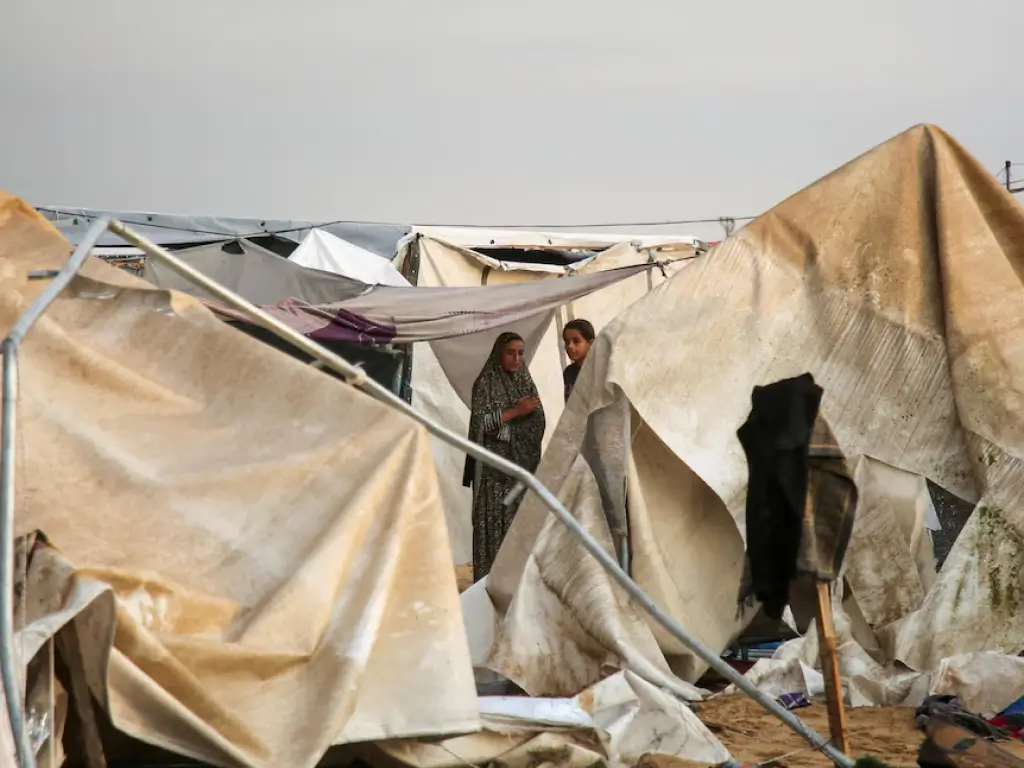On this score, in an interesting diplomatic signaling, the United States has informed Israel of its readiness to accept significantly improved conditions regarding humanitarian aid delivery to Gaza in the next month. This was a historical letter written jointly by Antony Blinken, Secretary of State, and Lloyd Austin, Secretary of Defense, thus putting pen to one of their strongest cautions to its closest ally. Against this background, this communication relates to an increasing humanitarian crisis in a densely populated al-Mawasi area where over 1.7 million Palestinians are residing and struggling, with a great chance of contagious diseases due to population densities.
This call is quite pertinent due to the heartbreaking situation in the Gaza Strip, as more humanitarian NGOs have recently claimed to witness that living conditions in this territory are getting worse due to the continual Israeli airstrikes. It has been estimated that 89 percent of all humanitarian crossings between northern and southern Gaza were closed last month and that essential supplies could not get through to the needy. Following its stands, the U.S. government raised its worries in the stipulated message, thereby pointing out that Israel’s unforgiving actions to limit the aid and other commerce supplies have fuelled the exacerbating humanitarian conditions.
The letter provides specific steps for Israel to take to improve aid deliveries. Among such requirements is the need to raise the number of allowed aid trucks into Gaza with the ultimate goal of achieving not less than 350 trucks per day across major crossings. Further, as in other cases, the USA demands the unblocking of civilian movement in Gaza, particularly in the overcrowded ‘al-Mawasi’ area, which, due to its appalling living conditions, has been referred to as the ‘humanitarian zone’.
Israel, for its part, is at the moment studying the letter, with officials there admitting that Israel “does take this matter seriously.” However, the Israeli government has accused its military of largely hunting down Hamas rather than hindering the delivery of aid. The arrival last week of WFP (World Food Programme) aid trucks into northern Gaza is a move in the right direction, but then, critics say much more still needs to be done to meet the Paris unlocked wider needs of the Palestine population.
The United States is the largest supporter of the Israeli military through military aid to contain rocket-propelled missiles from the Gaza Strip, which is controlled by Hamas. But the situation today has forced officials in the United States to recall the Israeli regime’s obligations under American law allowing the supply of military assistance only to those countries that do not hinder the delivery of humanitarian aid. The letter also leaves the common understanding of military support as unconditional and associated with humanitarian issues a memorable note.
In addition, the U.S. has suggested that any non-compliance with the outlined measures may attract “consequences for U.S. policy.” Though U.S. officials have not specified what might happen in the future, the message is clear: humanitarian access is critical and the U.S. wants Israel to act now.
The situation in Gaza worsened day by day, and now Gaza is likely to get a new governing structure in the coming year the international organizations cry for help, stating that the situation is a ‘constant peak emergency.’ The documents show that people in the northern regions are surviving only on UN relief food and have little or no supply of fresh produce. The executive director of the World Food Programme has said the block urgently requires increased funding to feed millions with food aid to prevent catastrophe.
Finally, as the deadline nears, the global community waits to see if Israel will listen to the call made by its biggest friend. The U.S. has reiterated concern about ensuring aid gets to the needy population while calling on Israel to restate its policy of not displacing people from the north.
It is an important moment in the relationship between the United States and Israel, already seen as a two-edged sword where it is a big question whether it is more in support of military assistance or to meet humanitarian tasks. The following several weeks will be critical for defining further challenges in attempting to access aid in Gaza and the implications of receiving Israeli military aid for both nations.










